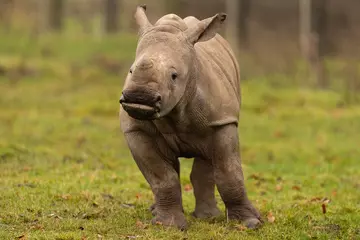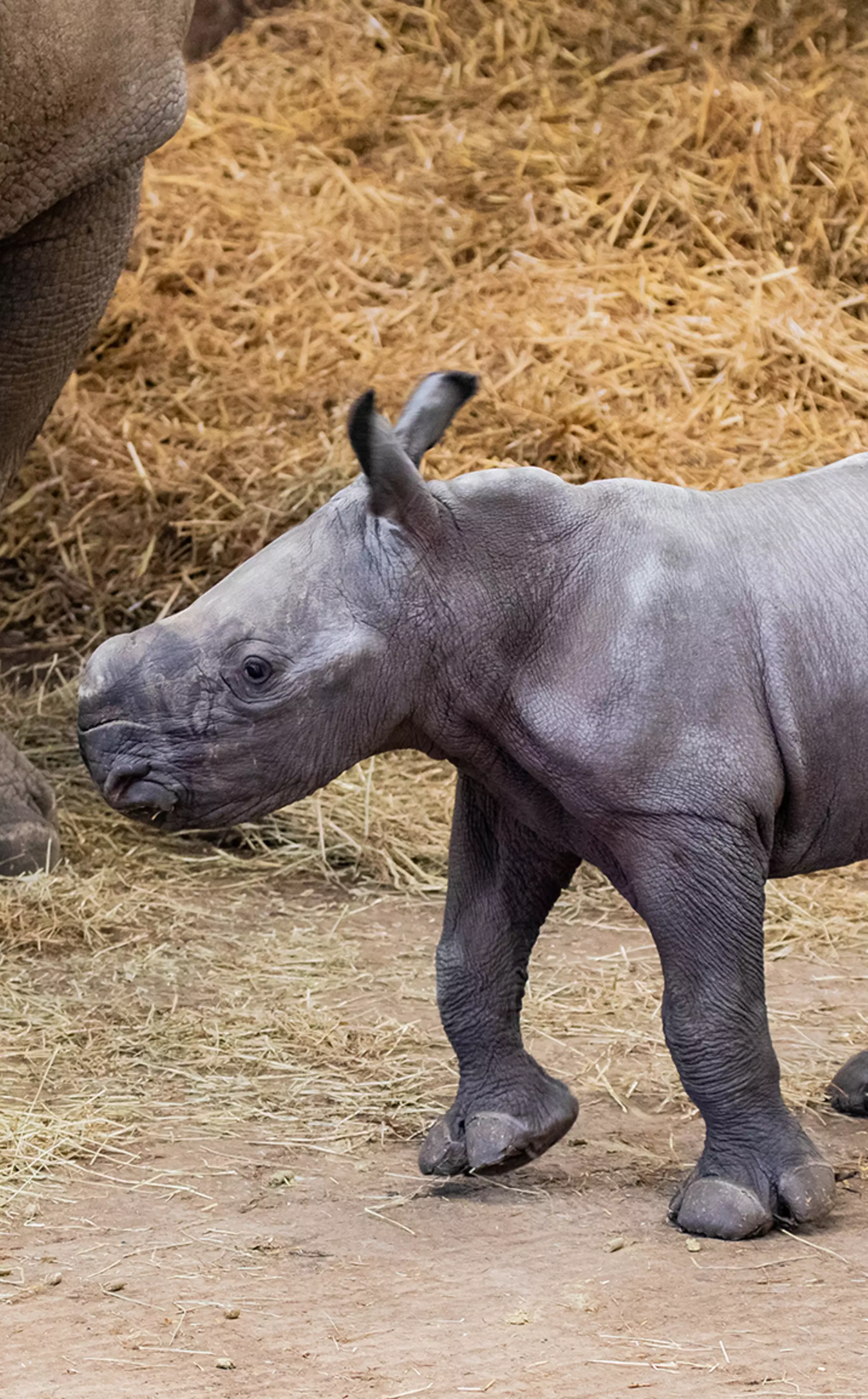A Southern white rhino calf (Ceratotherium simum ssp. simum) has been born at Whipsnade Zoo.
Nandi means 'sweet one' in Zulu
The female calf, named Nandi by zookeepers, was born at 4am on 21 August at the conservation Zoo, and is a welcome addition to the European Endangered species breeding programme. She joins her mum Tuli and dad Sizzle within the Zoo’s herd (also known as a “crash”) of eight Southern white rhinos.
Following a 16-month pregnancy, keepers at the UK’s largest Zoo had been using stool samples from 14-year-old rhino mum, Tuli, to monitor her hormone levels, and knew that she was within a couple of days of giving birth. They were delighted when, before dawn on Saturday, she gave birth to a healthy, female calf in an indoor part of the enclosure that had been reserved for her use.
Southern white rhinos are the world’s second largest land mammal.
According to the IUCN Red List for Threatened Species, there are approximately 10,000 Southern white rhinos left in the wild, and their numbers are decreasing due to poaching, habitat loss, introduction of invasive species and climate change.

Team leader Mark Holden said: “We are overjoyed to be welcoming such a precious addition to our ‘crash’ of Southern white rhinos at Whipsnade Zoo.
“Southern white rhinos are born with over-sized, rubbery feet, which they have to ‘grow into’, so Nandi is understandably wobbly when she walks. Rhino calves spend most of their first week or two resting and drinking milk, but over the next few weeks she’ll grow, and as she does, she’ll get more playful, and confident in exploring her huge enclosure here.
“Tuli is very protective right now, so we’re letting them rest away from the group and out of sight of visitors, but in a few days they’ll both start to feel more confident about Nandi venturing out and getting to know the rest of the herd.”
Every visit to our 600-acre space of wonder helps to fund our conservation work in over 50 countries around the world. Find out more about the conservation science we are championing around the globe
